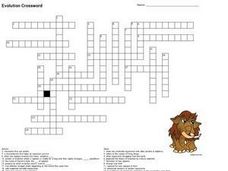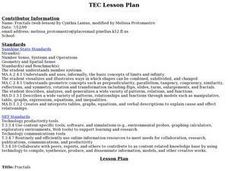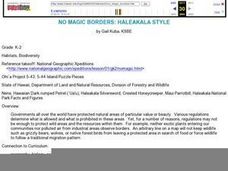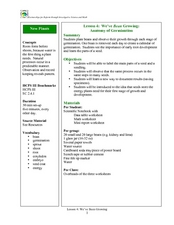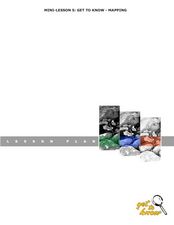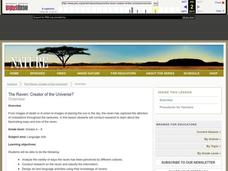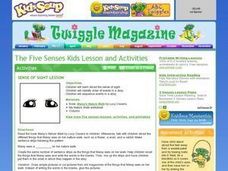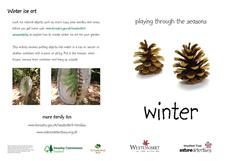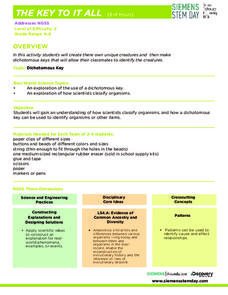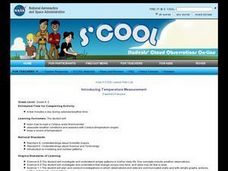Curated OER
Backyard Blitz
Students create a landscape design using shapes, colors and textures. A key is created with hyperlinks to information reports pertaining to the plants, trees and shrubs used in the design. Explore design principal utilizing a variety of...
Curated OER
Plants, Animals and Our Environment
Students draw and label the basic needs of animals. They draw and label the basic needs of plants. Students understand the basic needs of plants and animals are not only the same, but are interrelated. They know that the environment...
Curated OER
Flower Power
Students explore the parts of flowers and how they reproduce. They dissect flowers and observe the reproductive organs. Students observe anthers and ovaries of Tiger Lilies under a microscope. They investigate how insects and other...
Curated OER
The Monarch Butterfly Watch
Students explore monarch migration through the Journey North web site. In this butterfly lesson, students use the internet to identify a butterfly's migration pattern. Students write in electronic journals.
Curated OER
Particulate Matter- How Dirty is the Air We Breathe?
Fourth graders investigate air pollution. In this air pollution lesson, 4th graders test the air quality by using a block of wood and petroleum jelly. Students investigate the pollutants on the wooden block.
Curated OER
Student Exploration: Mineral Identification
In this mineral identification worksheet, students read nine vocabulary words and answer 5 short answer and fill-in-the-blank questions regarding minerals. There are four additional pages of related activities.
Curated OER
Elephant Earth Adventures . . .
In this reading comprehension about African elephants activity, students read factual passages about their physical characteristics, amazing facts, tusk uses, ears, trunk, skin, movement, food needs, extended families, and the active...
Curated OER
Milk and Monarch Butterfly Mania Journal Entry
For this milk and monarch butterfly mania journal entry worksheet, students write a scientific journal entry about the milkweed plant, using the information from another linked website. This worksheet includes many links to other web...
Curated OER
Melting, Freezing, and More!: Phase Transitions
Third graders listen to a talk on phase transitions and view three demonstrations. In this phases of matter instructional activity, 3rd graders complete a worksheet as they listen about phase transitions. They move through three...
Curated OER
Evolution Crossword
In this evolution crossword worksheet, 7th graders complete a crossword puzzle about evolution. Students read the definitions to fill in the puzzle with evolution terms.
Curated OER
What are Fractals?
Middle and high schoolers identify and analyze fractals and research information using the Internet to locate information about them. They look at fractals in relation to nature and other real world situations. Pupils create several...
Curated OER
No Magic Borders: Haleakala Style
Students discuss borders and boundaries. They discuss pollution and the fact that boundaries cannot stop pollution and that pollution affects even protected wildlife and plants. They participate in an activity in which they must place...
Curated OER
We’ve Bean Growing: Anatomy of Germination
Students identify the main parts of a seed. In this biology lesson plan, students explain the factors needed for the seed to grow. They record observations everyday and report findings to class.
Curated OER
Mini - Lesson #5: Get To Know - Mapping
Students examine and draw landscape maps. In this mapping lesson plan, students investigate what a landscape map is. They draw a map showing objects on a small piece of natural landscape. Students fill in a grid sheet and a worksheet to...
Curated OER
Comparing Seeds
Students explore the process of growing plants from seeds. In this hands-on science experiment, students observe different seeds (store bought vs. those directly from food items) and predict growing patterns.
Curated OER
The Raven: Creator of the Universe?
Learners explore biology by researching birds in class. In this raven identification lesson, students utilize the Internet to identify the anatomy, habits and habitat of ravens. Learners write descriptive paragraphs about ravens and read...
Curated OER
Sense of Sight Lesson
Students sequence what they saw in the book Maisy's Nature Walk. For this sequencing lesson plan, the teacher reads the book and the children listen and observe. Once the book is read, the students have to sequence what Maisy saw on her...
Contemporary Arts Center
Sultan and Donovan Printmaking: The Collargraph
As part of a study of printmaking, class members study the works of Tara Donovan and Donald Sulta. They go on to build a printing plate using glue, textured paper, and found objects.
Curated OER
Winter Play Pack
Uncover the magic of winter using this winter play pack. Fold it into a book for learners to work through as they explore wildlife during the cold months. They create winter ice art, go on a scavenger hunt for various plants and animals,...
Discovery Education
The Key to It All
Which characteristics make organisms unique? Dichotomous keys simplify the process of classifying organisms by focusing on these unique characteristics. Young scholars learn how to use the dichotomous key flow chart by creating their own...
Louisiana History Teachers
If You Give Napoleon a Cookie...
What fun! To illustrate the concept of appeasement, class members use Napoleon's exploits as the basis of their own illustrated children's book modeled after Laura Numeroff's circular tale, If You Give a Mouse A Cookie. What fun!
Library of Congress
Industrial Revolution
Could you live without your phone? What about cars, steel, or clothing? Class groups collaborate to produce presentations that argue that either the telephone, the gramophone, the automobile, the textile industry, or the steel industry...
Curated OER
A Peek at the Past: Gradualism vs. Punctuated Equilibria
Students consider two sets of simulated fossils (caminalcules) that are provided as cutouts. They arrange them on two time scales. One set produces a visual example of gradualism, the other shows punctuated equilibria.
Curated OER
Introducing Temperature Measurement
Students explore temperature and use Celcius thermometers to measure and graph the temperature in the classroom daily. They estimate what they think the temperature might be and then find the actual temperature in the room.











